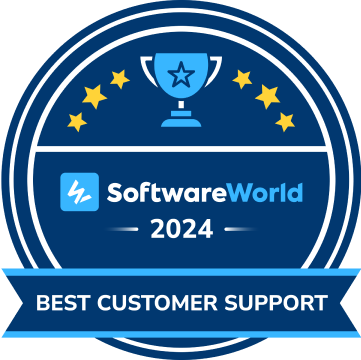The Training Imperative: Upskilling Your Team for the Ongoing AI Revolution in Pharma

The Cost of Inaction: A Call to Action
Imagine a scenario where your competitors swiftly adopt AI-driven solutions to enhance their operations (reducing their time and costs) while your team remains untrained and unprepared. The implications are stark: you risk losing market share, falling behind in innovation, and ultimately compromising profitability.
The Market Landscape is Changing
The pharmaceutical landscape is becoming increasingly competitive. A study by PWCi suggested up to 30% of jobs will be at risk of automation. The pharmaceutical industry is not immune to implementing AI technologies, with over 80% of pharmaceutical executives either currently using AI or planning to do so within the next two yearsii. If your workforce is not equipped with the skills to navigate this change, you may find yourself at a significant disadvantage.
Moreover, 80% of pharmaceutical and life sciences professionals are currently using AI for drug discovery, with 95% of pharmaceutical companies investing in AI capabilitiesiii. Companies that prioritise reskilling have reported a 15% improvement in overall operational efficiency. If you don't invest in upskilling your team now, you could be ceding ground to competitors that do.
The Transformative Potential of AI
AI has the potential to revolutionise drug discovery and clinical trials. Recent studies indicate that AI technology can reduce the time it takes to discover new drugs from 5-6 years to just one year. Additionally, using AI in clinical trials could lead to cost savings of 70% per trial and timeline reductions of 80%iv. These efficiencies can significantly impact how quickly new therapies reach patients and how effectively you can respond to market demands.
Furthermore, AI applications in pharmaceuticals can potentially create between £350 billion and £410 billion in annual value by 2025v. The global AI in pharmaceutical market was valued at USD 908 million in 2022 and is expected to reach over USD 11813.56 million by 2032, poised to grow at a compound annual growth rate (CAGR) of 29.30% from 2023 to 2032.

How AI Technologies Can Support Your Operations
AI technologies are not just tools; they are game-changers that can enhance various aspects of your pharmaceutical operations:
Enhanced Data Analysis and Decision-Making
One of the main advantages that companies like Unilevervi have experienced using AI-driven tools is they can process vast amounts of data quickly and accurately, allowing teams across the value chain (from R&D to marketing) to make informed decisions based on real-time insights.
Improved Training and Development
Secondly, investing in AI can transform your training methodologies in several waysvii:
- Continuous Learning: AI facilitates ongoing education by recommending courses based on individual progress.
- Data-Driven Insights: Companies leveraging AI algorithms can analyse data to identify knowledge gaps and recommend tailored training modules that can then be assigned to improve performance.
- Real-Time Feedback: Immediate feedback during training sessions enables employees to correct mistakes as they learn, and this is crucial in an industry where accuracy is paramount.
- Personalised Learning Paths: AI can create personalised learning experiences tailored to an individual’s needs.
- Reduction in Training Costs: Organisations using AI have reported reductions in training costs by up to 30%, thanks to using automated content deliveryviii.
Focusing on Medical Representatives (MRs)
While the benefits of AI extend across the pharmaceutical value chain, it is essential to highlight the critical role of Medical Representatives (MRs). They are often the frontline ambassadors for pharmaceutical companies, responsible for delivering intricate medical information and driving product adoption among healthcare professionals (HCPs).
The Importance of Upskilling Medical Representatives
Where information is abundant, but healthcare professionals are busy and don’t have a great deal of time, Medical Representatives need to have advanced skills to engage effectively with them. Research shows that 70% of information learned is forgotten within 24 hours if not reinforced. Additionally, studies indicate that over 62% of employees feel overwhelmed by the heer volume of information they must process dailyix.
Here's why upskilling MRs is crucial:
- Navigating Complex Interactions: To assist Medical Representatives in managing challenging conversations with healthcare professionals (HCPs), we have developed COSMART AVA, an advanced training simulator that immerses MRs in realistic scenarios. As a cutting-edge AI training tool, AVA equips MRs with essential product knowledge, effective objection-handling techniques, and key messaging strategies. The measurable outcomes from AVA’s simulations identify areas for improvement and support targeted efforts to enhance team performance and drive sales success.
- Building Relationships: When Medical Representatives are trained, they can also use AI tools to personalise their interactions with healthcare professionals.
- Effective Learning Techniques: Incorporating active recall techniques into training compared to passive study methods encourages deeper understanding, making it more likely they will remember critical details during real-world interactions.
The Risks of Not Adopting AI
Conversely, there are also significant risks for companies that fail to implement AI solutions or invest in upskilling their staff. These include:
- Loss of Market Share: As competitors adopt AI technologies, they are likely capture market share that could have been yours.
- Decreased Competitiveness: Without a skilled workforce adept at using AI tools, your company may struggle to keep pace with industry innovations.
- Profitability Concerns: Companies that embrace AI could see an increase of up to £254 billion in operating profits worldwide by 2030x. If you do not act now, you may find yourself on the wrong side of this financial opportunity.
 1.png)
Conclusion: Embracing the AI Revolution as Leaders
With AI technology advancing at pace, now is the ideal time for companies to embrace the AI revolution and lead the charge towards a more efficient, innovative, and profitable future, or risk being left behind by competitors willing to invest in the necessary upskilling of their workforce.
When considering AI, it is important to reflect on the potential positive impact that AI could deliver for your organisation. Envision the competitive advantage of having a team of highly skilled medical representatives who can navigate complex interactions with healthcare professionals, build stronger relationships, and drive increased product adoption.
Now, consider the alternative. Imagine losing market share to rivals who have already committed to upskilling their workforce and leveraging AI-driven solutions. Picture the long-term consequences of decreased competitiveness and the potential loss of £254 billion in operating profits by 2030.
By investing in advanced training methodologies and embracing AI-driven solutions, you can empower your teams to excel amidst ongoing changes in technology and market demands. This commitment to upskilling demonstrates your leadership and vision, inspiring your workforce to rise to the challenges of the future.
For more information contact: www.vivanti.eu
References:
- https://www.pwc.com/hu/hu/kiadvanyok/assets/pdf/impact_of_automation_on_jobs.pdf
- https://eularis.com/how-pharma-companies-can-leverage-ai-across-the-entire-value-chain/
- https://www.sciencedirect.com/science/article/pii/S2949866X24000327
- https://pharmaceutical-journal.com/article/feature/how-ai-is-transforming-drug-discovery
- https://www.precedenceresearch.com/ai-in-pharmaceutical-market
- https://www.unilever.com/news/news-search/2023/how-ai-and-digital-help-us-innovate-faster-and-smarter/
- https://academic-publishing.org/index.php/ejel/article/view/2597
- https://www.reworked.co/learning-development/can-you-trust-ai-to-revolutionize-corporate-training/
- https://www.indegene.com/what-we-think/reports/understanding-science-behind-learning-retention
- https://www.strategyand.pwc.com/de/en/industries/pharma-life-sciences/re-inventing-pharma-with-artificial-intelligence.html#:~:text=markets%2C%20and%20Europe.-,In%20total%2C%20pharma%20companies%20could%20gain%20an%20additional%20%24254bn,%2414bn%20in%20.
Related Case

Main challenge
A leading pharmaceutical company needed to ensure the field force could deliver timely, relevant messages to HCPs across multiple channels. The company sought better alignment between marketing strategies and field activities, ensuring that the field force could deliver up-to-date messages aligned with current campaign insights.
The winning formula
COSMART AVA AI Trainer enhanced the role of the field force within the omnichannel marketing strategy. The platform enabled marketers to upload updated materials into a training library, allowing the field force to practise and deliver the latest messages. This ensured that the field force was always aligned with current marketing priorities.
Achievements
- Greater communication flexibility, with the field force adapting to the latest marketing strategies in real-time.
- Faster response times, with updates delivered to the field force in days rather than months.
- Higher HCP engagement, ensuring timely and relevant messaging.
- Stronger market positioning, with the ability to quickly adapt to industry shifts or product changes.
- Improved field force performance through real-time training updates.
Takeaways
- The field force is a key part of an agile omnichannel strategy, delivering up-to-date messages directly to HCPs.
- COSMART AVA AI Trainer bridges the gap between marketing and field teams, ensuring consistency.
Сontact
Hello Vivanti, I would like to discuss a project idea with you.
Get involved
From ideas to impact —
let’s collaborate.


United States
United Kingdom
European Union
